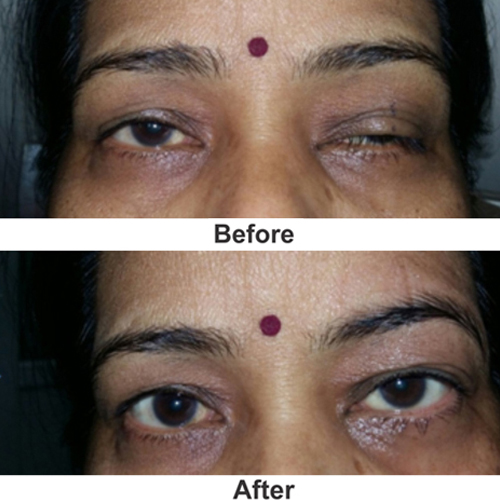Understanding Oculoplasty: Exploring the Basics
Oculoplasty is a type of surgery centered around the eyes and nearby areas. It’s not just about fixing how things look, but also how they work. Surgery can help with eyelids, tear ducts, the eye socket, and even some parts of the face. This type of surgery can make a big difference in both looking better and feeling better. It’s not just for looks but can seriously help fix issues with how your eyes work to give you relief and improve eye health.
Why Might You Need an Oculoplasty Procedure?
There are many reasons someone might need an oculoplasty procedure. If you have droopy eyelids that affect your vision, surgery could be beneficial. It is also helpful for blocked tear ducts causing constant tearing. If you have problems with the eye socket or the tissue around it, oculoplasty procedures may be the answer. You may also need this if you experience:
- Ptosis: Drooping of the upper eyelid that affects vision.
- Entropion: An inward turning of the eyelid causing discomfort.
- Issues from thyroid disease causing eye bulging or changes.
- Tumors in or around the eye affecting appearance or function.
- Injuries or trauma needing restoration.
Recognizing these issues early can make a big difference in outcomes.
Detecting Eyes in Distress: Symptoms Indicative of Oculoplastic Needs
There are signs to look for if oculoplasty might be helpful. These signs include:
- Consistent trouble seeing due to droopy eyelids.
- Continual tearing or watery eyes that just don’t stop.
- Constant redness or irritation in the eyes that bothers you.
- Noticing growths or bumps around the eyes.
Physical changes like these not only affect how you feel but might impact your facial appearance. Altered facial symmetry can affect self-esteem and might be a reason to consider surgery.
Benefits and Reassurances of Undergoing Oculoplasty
Undergoing oculoplasty often results in improved vision and comfort, making everyday life easier. People usually feel better not just physically but also mentally, as the surgery might improve how they look and feel about themselves. Better symmetry and appearance can boost confidence and overall well-being.
Journey through Oculoplasty: Understanding the Procedure
Understanding what happens during oculoplasty can make the process less daunting. Here’s a rough idea of what to expect:
- Pre-Surgery: You’ll have appointments to talk about your health and determine what needs fixing. This includes talking about medications and the type of anesthesia.
- Surgery day involves the procedure under local or general anesthesia, depending on what needs to be done.
- Post-Surgery Care: You’ll need instructions for recovery, including sticking to follow-ups to watch for any oculoplasty side effects or complications. Complete healing can take time, so attention to the surgeon’s advice is key.
Recognizing Risks and Considerations in Oculoplasty
Like any surgery, oculoplasty has risks including possible infection or complications from anesthesia. Individual health factors can also affect surgery, so it’s important to research fully and have a qualified surgeon. Being informed about these risks helps prepare for safer outcomes and ensures realistic expectations.
Who Should Consider Oculoplastic Surgery?
If you’re dealing with any of these health challenges or want aesthetic improvements, oculoplasty might be suitable. However, having realistic expectations and being ready to invest the time in recovery is crucial. Talking with a doctor can indicate whether you’re a good candidate for these surgeries, ensuring they align with your goals.
Concluding Insights: Taking the Next Step with Oculoplasty
Recognizing signs like those we’ve discussed can lead to better intervention and outcomes. Whether it’s about function or appearance, taking action with oculoplasty procedures tailored to your needs can help a lot. Always seek advice from specialists to ensure the best care and plan that fits your personal health needs and goals. For those considering this step, learning more about oculoplasty vs oculoplasty options will further clarify things, as the terms are often used interchangeably but can be nuanced in specific practices.

